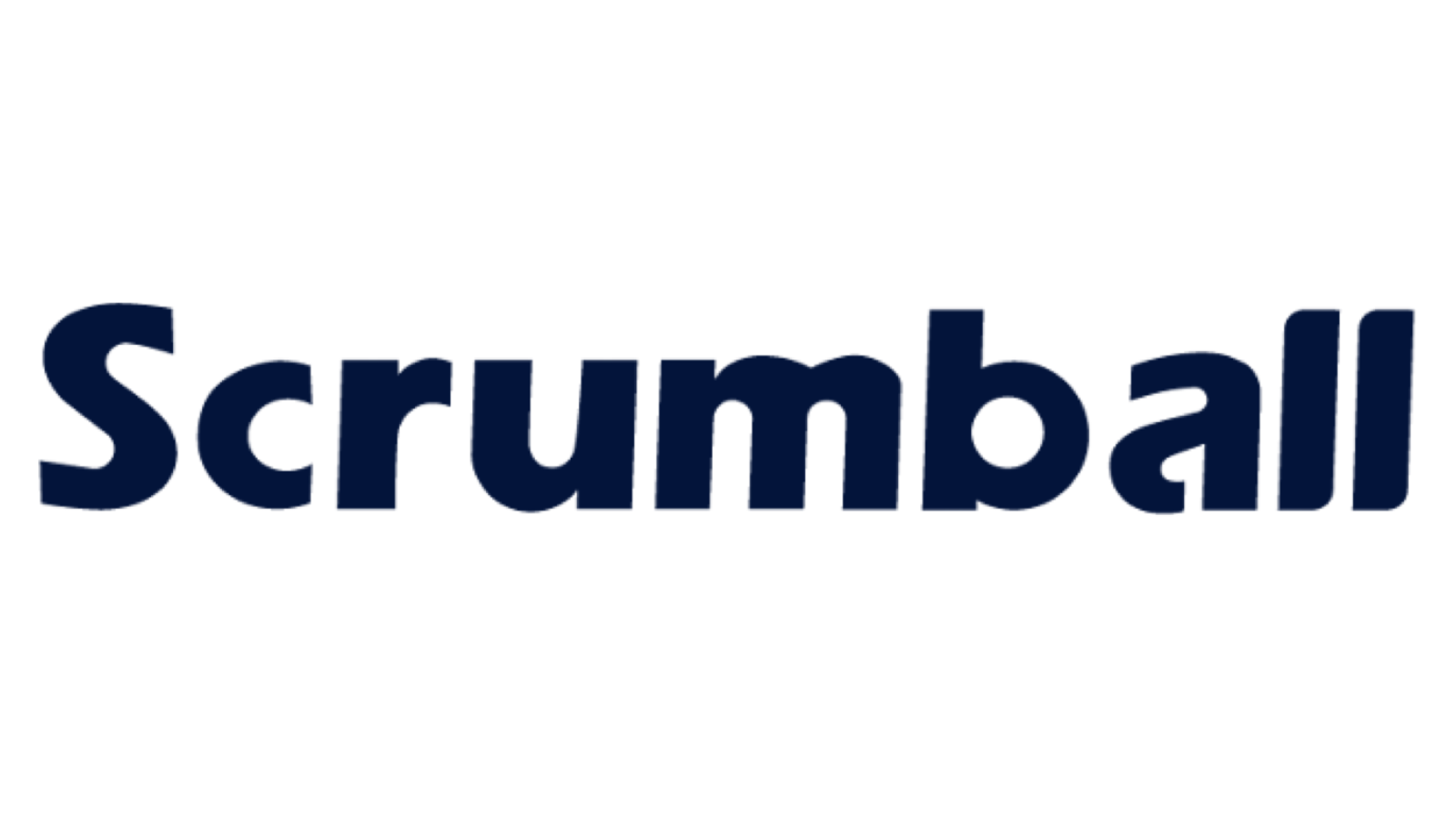CRM vs Marketing Automation Which Tool Fits Your Business Needs

Choosing between CRM vs marketing automation can feel overwhelming. You might wonder which tool aligns better with your business goals or how they differ. CRM focuses on managing customer relationships, while marketing automation streamlines repetitive marketing tasks. Both tools can transform your processes, but challenges like data synchronization or team adoption often arise. For example, ensuring smooth data syncing requires clear field mapping and regular checks. By understanding your needs and aligning workflows, you can overcome these hurdles and make the right choice for your business.
What is CRM?
Definition and Core Functions
CRM, or customer relationship management, is a tool that helps you manage and improve your interactions with customers. It centralizes customer data, making it easier to track their preferences and past interactions. This allows you to deliver personalized experiences and build stronger relationships. CRM systems also support multiple departments, including sales, marketing, and customer service, ensuring everyone stays on the same page.
Some of the core functions of CRM include:
- Contact Management: Organizing customer information for better communication.
- Sales Pipeline Tracking: Monitoring deals from start to finish.
- Interaction History: Keeping a record of all customer touchpoints.
- Lead Management: Helping you nurture potential customers effectively.
| Function | Description | Business Impact |
|---|---|---|
| Contact Management | Stores and organizes customer contact info | Improved customer accessibility and communication |
| Sales Pipeline Tracking | Monitors deals from lead to closure | Better sales forecasting and management |
| Interaction History | Records all customer touchpoints | Enhanced customer service and relationship building |
| Lead Management | Tracks and nurtures potential customers | More efficient lead conversion |
Primary Users of CRM
CRM systems are widely used across industries. Whether you're in retail, finance, real estate, or even education, CRM can help you achieve your goals. For example:
| Industry | Benefits |
|---|---|
| Retail | Targeted promotions increase consumer engagement and boost conversion rates. |
| Finance | Enhanced client relationships and faster contract closures. |
| Real Estate | Improved lead monitoring and follow-up, increasing revenue per sales representative. |
| Education | Better communication management leads to higher student satisfaction and retention. |
Key Benefits of CRM
Improved Customer Relationships
CRM helps you understand your customers better. By tracking their preferences and interactions, you can offer personalized experiences that foster loyalty. This builds trust and keeps customers coming back.
Enhanced Sales Efficiency
With CRM, your sales team can focus on closing deals instead of juggling spreadsheets. Features like sales pipeline tracking and lead management streamline the process, making your team more productive.
Data-Driven Decision-Making
CRM software provides valuable insights through data analysis. You can identify trends, measure performance, and make informed decisions to improve your strategies. Did you know that 89% of companies report a revenue increase after implementing CRM? That’s the power of data!
💡 Fun Fact: The global CRM market was valued at $65.59 billion in 2023 and is expected to grow at a CAGR of 13.9% from 2024 to 2030.
What is Marketing Automation?
Definition and Core Capabilities
Marketing automation is a powerful tool that simplifies your marketing efforts by automating repetitive tasks. It helps you create personalized experiences, nurture leads, and optimize campaigns across multiple channels. With marketing automation systems, you can focus on strategy while the software handles the heavy lifting.
Here’s what makes marketing automation tools so effective:
| Capability | Description |
|---|---|
| Diverse Functionality | Automates repetitive tasks, freeing up time for strategic initiatives. |
| Personalization at Scale | Uses customer data to tailor messages for specific segments. |
| Lead Nurturing and Scoring | Tracks leads throughout their journey and assigns scores for targeted engagement. |
| Multi-Channel Engagement | Ensures cohesive communication across various platforms. |
| Data-Driven Decision-Making | Provides insights into campaign performance for smarter decisions. |
| Campaign Optimization | Enables A/B testing to refine marketing strategies. |
| Integration with CRM Systems | Combines with CRM for a unified approach to customer interactions. |
| Scalability and Flexibility | Adapts to your growing campaigns and data needs. |
| Empowering Marketers | Automates tasks and delivers analytics to enhance customer experiences. |
The global marketing automation market reflects its growing importance. In 2022, it was valued at $5.21 billion and is projected to reach $13.50 billion by 2030, with a CAGR of 12.9%. By 2024, the market size is expected to hit $6.65 billion, growing at a CAGR of 15.3% from 2025 to 2030.
Primary Users of Marketing Automation
Marketing automation tools are a game-changer for marketers. If you’re in B2B or B2C industries, these tools can help you manage leads, improve customer engagement, and drive conversions. Marketing teams, sales professionals, and even small business owners use them to streamline processes and achieve better results. For example, if you’re nurturing marketing qualified leads, automation ensures timely follow-ups and personalized communication.
Key Benefits of Marketing Automation
Automating Repetitive Tasks
Imagine not having to send emails manually or track every lead yourself. Marketing automation takes care of these repetitive tasks, so you can focus on creative strategies. It simplifies email campaigns, social media scheduling, and even lead management. This boosts productivity and lets you achieve more in less time.
Enhancing Lead Generation
Marketing automation tools excel at lead generation. They help you capture, nurture, and convert leads into customers. Features like lead scoring ensure you focus on high-quality prospects, turning them into marketing qualified leads. Businesses using automation report a 20% increase in sales opportunities.
Improving Campaign Performance
With automated marketing workflows, you can analyze campaign performance and make data-driven decisions. Automated emails, for instance, achieve 86% higher open rates and 196% higher click-through rates. A/B testing capabilities let you refine your strategies for maximum impact.
💡 Pro Tip: Integrating marketing automation with CRM systems creates a seamless experience for both your team and your customers.
Key Differences Between CRM and Marketing Automation

Focus and Objectives
When comparing CRM and marketing automation, their focus and objectives set them apart. CRM revolves around managing and nurturing customer relationships throughout their lifecycle. It helps you retain customers and streamline sales processes. On the other hand, marketing automation is all about efficiency. It automates repetitive tasks like email campaigns and social media posts, making your marketing efforts more effective.
Here’s a quick breakdown:
| CRM | Marketing Automation | |
|---|---|---|
| Primary Focus | Managing and nurturing customer relationships. | Automating marketing tasks and workflows. |
| Goal | Improve customer retention and enhance sales processes. | Boost lead generation and automate repetitive tasks. |
| Key Functions | Contact management, sales pipeline tracking, and customer service. | Email marketing, lead scoring, and campaign management. |
If your business needs better customer relationship management, CRM is the way to go. But if you’re looking to optimize lead generation and marketing workflows, marketing automation might be your best bet.
Primary Users
The primary users of CRM and marketing automation tools differ based on their roles and responsibilities. CRM systems are typically used by sales teams, customer service representatives, and account managers. These tools help them manage customer interactions, track sales pipelines, and improve customer satisfaction.
Marketing automation platforms, however, are a favorite among marketing teams. Digital marketers, content creators, and campaign managers use these tools to streamline lead generation, nurture leads, and run targeted campaigns. If your focus is on managing leads and guiding them through the marketing funnel, marketing automation is essential. But if you’re more concerned with maintaining strong customer relationships, CRM is your go-to tool.
Data Priorities
The data priorities of CRM and marketing automation systems reflect their distinct purposes. CRM systems focus on detailed customer information. They store contact details, purchase history, and customer service interactions. This helps you build stronger relationships and make informed decisions.
Marketing automation, however, prioritizes data related to marketing campaigns and customer behavior. It tracks email interactions, lead scoring, and campaign performance. This data helps you refine your strategies and improve engagement. While CRM software is centered on customer management, marketing automation excels at generating and nurturing leads. Together, they create a powerful combination for your business.
💡 Tip: Integrating CRM and marketing automation can give you the best of both worlds. You’ll manage customer relationships while automating marketing tasks seamlessly.
Comparison Table
When deciding between CRM and marketing automation, a side-by-side comparison can make things clearer. Let’s break it down into key metrics and focus areas to help you see the big picture.
Key Metrics to Consider
Here are some important metrics you should evaluate when comparing these tools:
- Cost Per Lead (CPL): How much are you spending to generate each lead?
- Lead Conversion Rate: How effective are your nurturing efforts?
- Lead Scoring Accuracy: Are you focusing on high-quality leads?
- Open Rate: How engaging are your email subject lines?
- Click-Through Rate (CTR): Are your email campaigns driving action?
- Unsubscribe Rate: Are your messages relevant to your audience?
- Website Traffic: How far is your marketing reach extending?
- Session Duration: Are visitors finding your content valuable?
- Bounce Rate: Are your landing pages meeting expectations?
- Social Media Engagement Rate: Is your content resonating with your audience?
CRM vs Marketing Automation: Focus Areas
Here’s a quick comparison of how CRM and marketing automation tools differ in their focus:
| Metric | CRM Focus | Marketing Automation Focus |
|---|---|---|
| Sales Performance | Yes | No |
| Customer Data Management | Yes | No |
| Support Efficiency | Yes | No |
| Campaign Effectiveness | No | Yes |
| Lead Generation | No | Yes |
| Nurturing | No | Yes |
| Audience Engagement | No | Yes |
CRM tools shine when it comes to managing customer data, improving sales performance, and enhancing support efficiency. On the other hand, marketing automation excels at generating leads, nurturing them, and boosting audience engagement.
💡 Tip: If you want the best of both worlds, consider integrating CRM with marketing automation. This way, you’ll manage customer relationships while automating your marketing efforts seamlessly.
When to Use CRM, Marketing Automation, or Both

Scenarios for Using CRM
CRM is your go-to tool when managing customer relationships is your top priority. If your business focuses on building long-term connections, CRM software helps you track interactions, preferences, and purchase history. For example, if you’re in retail or real estate, CRM ensures you stay on top of customer needs and follow-ups. It’s also perfect for businesses aiming to improve sales efficiency. Features like sales pipeline tracking and lead management help your team close deals faster.
Another scenario is when your customer service team needs better tools. CRM centralizes customer data, making it easier to resolve issues and provide personalized support. If your goal is to make data-driven decisions, CRM software offers insights that help you identify trends and improve strategies. Whether you’re a small business or a large enterprise, CRM can scale with your growth.
Scenarios for Using Marketing Automation
Marketing automation tools shine when you need to streamline repetitive tasks and focus on strategy. They’re ideal for businesses looking to enhance lead generation and nurturing. For instance, if you’re running email campaigns, automation handles everything from scheduling to A/B testing. It’s also great for social media marketing, where you can automate posts and track engagement metrics.
Here’s a quick look at common scenarios:
| Scenario | Description |
|---|---|
| Social Media Marketing | Streamlining workflows across platforms, automating post scheduling, and tracking engagement metrics. |
| Email Marketing | Setting up email sequences, managing lists, and using A/B testing for optimization. |
| Personalization | Automating data collection, audience segmentation, and creating dynamic content based on user data. |
If your marketing team wants to improve campaign performance and audience engagement, marketing automation is the way to go. It’s also a lifesaver for small teams juggling multiple tasks.
Benefits of Integrating CRM and Marketing Automation
Combining CRM and marketing automation gives you the best of both worlds. Integration creates a seamless flow of customer data between sales and marketing. This improves cooperation and ensures both teams work toward shared goals. You’ll also gain better insights into customer behavior, helping you personalize communication and boost engagement.
Here are some key benefits:
- Improved cooperation between marketing and sales.
- Two-way flow of customer data.
- Personalized customer communication.
- Seamless customer experience leading to increased sales.
- Better insights into customer behavior.
- Improved lead quality.
- Unified customer profiles to spot patterns and trends.
Integrated sales and marketing efforts lead to better lead management and business growth. You’ll save resources and create a more rewarding experience for your customers. If you’re aiming for long-term success, integrating CRM and marketing automation is a smart move.
How to Choose the Right Tool for Your Business
Decision-Making Framework
Assessing Business Size and Goals
Your business size and goals play a huge role in deciding between CRM and marketing automation. Start by asking yourself a few questions: What are your primary objectives? How many customers do you manage? What’s your monthly lead volume? These answers will guide your choice.
Here’s a quick breakdown to help:
| Business Size | Recommended Approach | Integration Priority |
|---|---|---|
| Small Business (1-50 employees) | Start with basic CRM, add marketing automation as needed | Medium |
| Mid-Size (51-500 employees) | Implement both systems with full integration | High |
| Enterprise (500+ employees) | Comprehensive integrated solution with custom features | Critical |
If you’re a small business, a simple CRM might be enough to manage customer relationships. As you grow, adding marketing automation tools can help with lead nurturing and campaign management. For larger businesses, integrating both systems ensures smooth workflows and better results.
Evaluating Budget and Resources
Budget is another key factor. CRM and marketing automation tools come with different pricing models. Most CRM providers charge per user, while marketing automation pricing often depends on features or the number of contacts in your database. Watch out for onboarding fees, ongoing training costs, and hidden expenses. These can add up quickly.
If you’re looking to save, annual payment plans often come with discounts. However, don’t forget to factor in the cost of add-ons for extra features. Balancing your budget with your business needs will help you make a smarter choice.
Considering Team Structure and Expertise
Think about your team’s skills and size. If your team isn’t tech-savvy, choose tools with user-friendly interfaces and strong customer support. For smaller teams, marketing automation can handle repetitive tasks, freeing up time for strategy. Larger teams might benefit from CRM software to manage customer data and streamline sales processes. The right tool should complement your team’s strengths and fill any gaps.
Practical Tips for Evaluating Software Options
When comparing CRM and marketing automation tools, focus on what matters most to your business. Here’s a checklist to guide you:
- Look at the features and functionality. Does the tool meet your needs?
- Check the product’s market share and reputation.
- Explore available integrations with your existing software.
- Compare pricing and contract terms.
- Read third-party reviews to see what others think.
Scalability is also important. Choose a tool that grows with your business. Usability and customer support should also be top priorities. A tool that’s hard to use or lacks support can slow you down. By evaluating these factors, you’ll find a solution that fits your goals and budget.
Choosing between CRM and marketing automation depends on your business's goals, size, and resources. CRM focuses on managing customer relationships, while marketing automation tools streamline repetitive marketing tasks. Both systems share similarities, like improving efficiency and offering data-driven insights, but their primary functions and user bases differ.
| CRM | Marketing Automation | Similarities | |
|---|---|---|---|
| Primary Focus | Managing customer relationships. | Automating marketing workflows. | Both enhance efficiency and customer engagement. |
| Goal | Boost customer retention and sales. | Improve lead generation and campaign performance. | Both aim to increase ROI and streamline workflows. |
If you want to maximize business growth, integrating CRM and marketing automation is a smart move. Use strategies like native integrations or APIs to ensure seamless data flow and eliminate duplicates. Carefully assess your needs, map out the customer journey, and choose tools that align with your goals. This approach will help you create a unified system that drives success.
💡 Tip: Integration not only improves collaboration between sales and marketing but also enhances the customer experience, leading to long-term business growth.
FAQ
What’s the main difference between CRM and marketing automation?
CRM focuses on managing customer relationships and sales processes. Marketing automation streamlines repetitive marketing tasks like email campaigns. While CRM helps you retain customers, marketing automation generates and nurtures leads. Together, they create a seamless customer experience.
Can small businesses benefit from CRM or marketing automation?
Absolutely! Small businesses can use CRM to manage customer data and improve sales. Marketing automation helps them save time by automating tasks like email marketing. Both tools scale as your business grows, making them valuable investments.
Should I integrate CRM and marketing automation?
Yes, integration offers the best of both worlds. It aligns sales and marketing teams, improves lead quality, and enhances customer experiences. You’ll also gain better insights into customer behavior, which helps you make smarter decisions.
How do I decide between CRM and marketing automation?
Start by assessing your goals. If you need to manage customer relationships, go for CRM. If lead generation and campaign management are priorities, choose marketing automation. For maximum impact, consider integrating both.
Is CRM vs marketing automation a one-or-the-other choice?
Not at all! These tools complement each other. CRM manages customer relationships, while marketing automation focuses on lead generation. Using both creates a unified system that boosts efficiency and drives growth.
See Also
Navigating Influencer Marketing Tools for Small Enterprises
Best Influencer Marketing Tools for Online Retail Triumph
7 Key Steps for Measuring Content Marketing Returns
